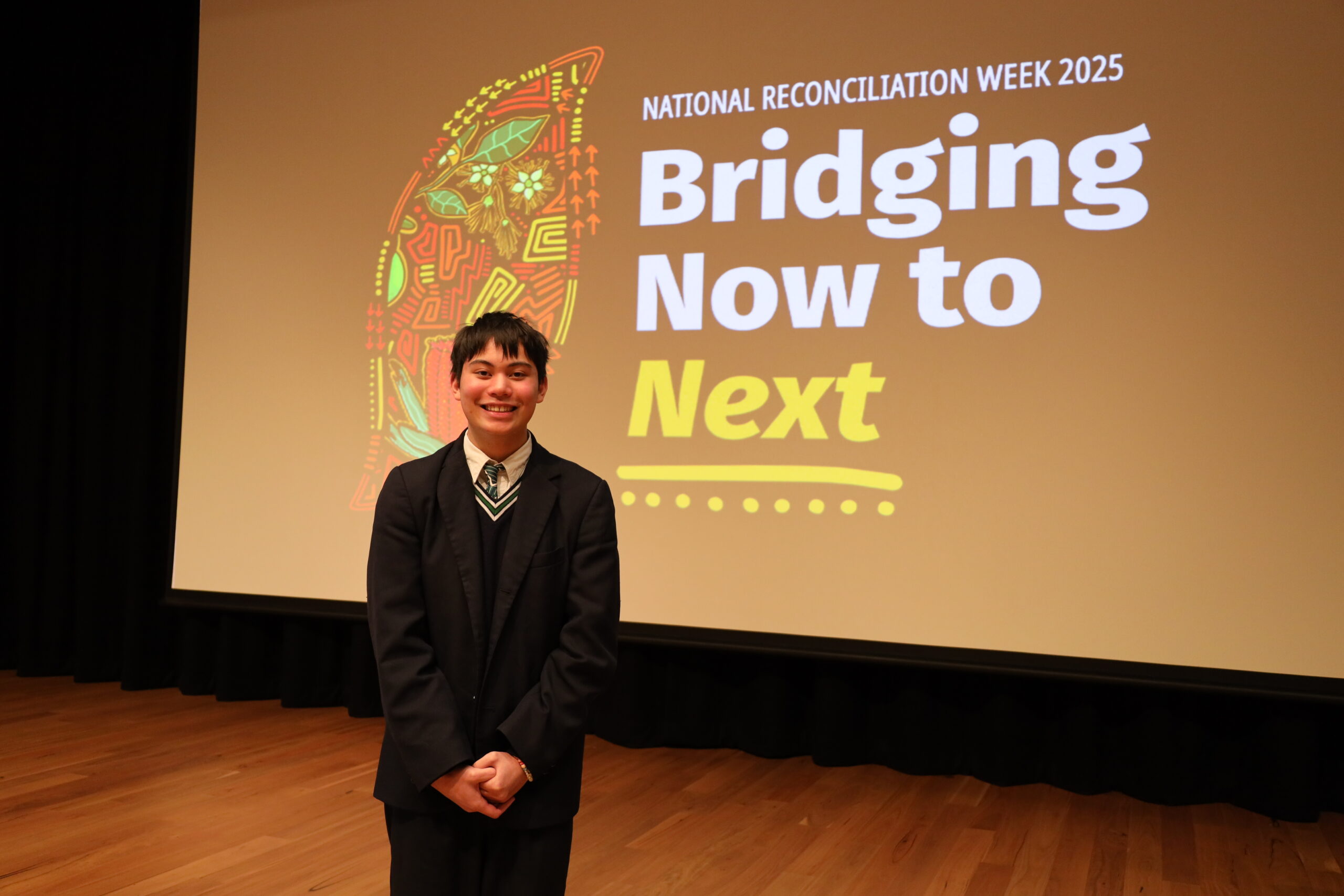At the College’s Reconciliation and Inclusion Assembly on 5 June, Year 11 student Daniel Rivas delivered a powerful and heartfelt speech about his journey as a young Indigenous man from Darwin. Daniel spoke openly and bravely about the pain of cultural disconnection and the struggle to find identity—a legacy of the Stolen Generations.
Through the support of the Clontarf Academy and his time at St Pat’s, Daniel has begun to reconnect with his heritage and find strength in his story. His message was a powerful call to action: Reconciliation is not just a word—it’s about truth, respect, and creating space for all voices to be heard.
Good afternoon students and staff of St Patrick’s College.
My name is Daniel Rivas, and I’m a proud Indigenous young man from Darwin, in the Northern Territory. While I carry this pride with me every day, I want to speak honestly about something that has deeply shaped my journey—the feeling of disconnection.
Living in the Northern Territory often feels like being caught between two worlds. It’s a place rich in culture, community, and breathtaking landscapes—but also a place marked by deep hurt, especially for young Aboriginal people like me.
Growing up, I saw disconnection all around me—and I felt it within myself. I didn’t grow up with a strong connection to my culture. Many of the ties to my heritage were lost before I even had the chance to understand them. I know I’m not alone in this. Thousands of others have experienced the same loss, largely due to the impacts of the Stolen Generations. Because of that, many of us struggle with identity. It creates a silence inside—a space that’s hard to explain. It’s like searching for a part of yourself that everyone says is there… but you just can’t find it.
I feel that silence most when I’m around other Indigenous people who are strong in their culture—those who know their language, their stories, their Mob, and their Country. In those moments, I often feel like an outsider looking in. Like I don’t belong. Like I’m an intruder in my own identity. It’s a feeling of shame, as if I’m not “enough.” And that feeling doesn’t just live in my head. I feel it in my skin, in the way I stand in a room, in how I speak, and in how I carry myself. You start to see the distance between who you are and who you wish you were and it can be isolating.
I carried those feelings for a long time. But in 2021, I joined the Clontarf Foundation and things began to change. Through Clontarf, I was given the opportunity to attend this great school. And now, here I am, standing before you, sharing my story. Clontarf gave me something I didn’t expect: a chance to start understanding myself.
Moving to Victoria wasn’t easy. It was cold and still is! The school felt big and overwhelming. And I was far from home and family. But what made it feel right was knowing that my Mob is from this region. I’m walking on Country that is part of me even if I didn’t know it growing up. And that’s powerful.
Clontarf didn’t just give me a school, they gave me support, direction, and opportunity. They gave me space to grow. They helped me find confidence. And they support my dream of studying medicine so I can return to remote communities and help where it’s truly needed.
They also introduced me to Aboriginal art which has become a way for me to express who I am, even when words fall short. They helped me find strength in my story, not shame.
I’m still learning. I’m still reconnecting. I’m still figuring out who I am. But for the first time, I feel like I can. I feel like I deserve to.
Reconciliation is about truth. And the truth is, disconnection hurts. But healing is possible. It doesn’t happen overnight. Healing is a journey. And when we make space for young people like me to learn, grow, and flourish—whether it’s through Clontarf, in classrooms, or in everyday life—we move forward.
We carry culture forward, not just for ourselves, but for future generations.
So, when we talk about reconciliation, let’s remember: it’s not just a word or a week. It’s an action. It’s listening. It’s rebuilding trust, supporting one another, and showing respect. It’s about telling the truth of our history and believing in a better future.
Thank you.

